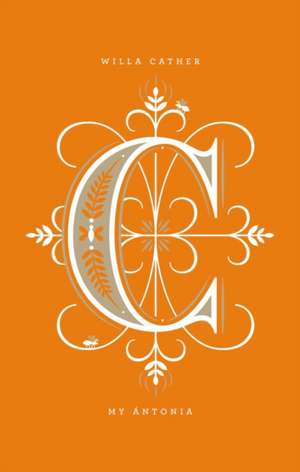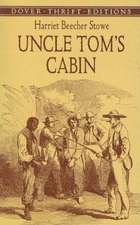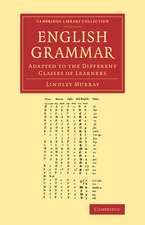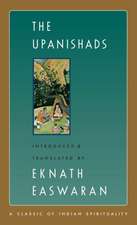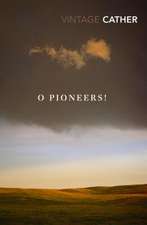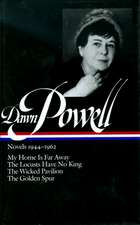My Antonia: Drop Caps
Autor Willa Catheren Limba Engleză Hardback – 11 dec 2012
| Toate formatele și edițiile | Preț | Express |
|---|---|---|
| Paperback (48) | 21.33 lei 3-5 săpt. | +11.11 lei 4-10 zile |
| HarperCollins Publishers – 7 feb 2019 | 21.33 lei 3-5 săpt. | +11.11 lei 4-10 zile |
| Bantam Books – 31 dec 1993 | 34.42 lei 3-5 săpt. | |
| Signet Classics – 3 mar 2014 | 34.42 lei 3-5 săpt. | |
| Dover Publications – 30 sep 1994 | 39.66 lei 3-4 săpt. | +13.94 lei 4-10 zile |
| Dover Publications – 30 iun 2011 | 42.06 lei 3-5 săpt. | |
| OUP OXFORD – 11 dec 2008 | 47.85 lei 10-16 zile | +17.19 lei 4-10 zile |
| CREATESPACE – | 48.86 lei 3-5 săpt. | |
| CreateSpace Independent Publishing Platform – | 52.46 lei 3-5 săpt. | |
| Little Brown Book Group – 7 sep 2006 | 53.46 lei 3-5 săpt. | +26.98 lei 4-10 zile |
| Vintage Publishing – 5 sep 2019 | 53.94 lei 24-35 zile | +20.40 lei 4-10 zile |
| CREATESPACE – | 56.23 lei 3-5 săpt. | |
| CreateSpace Independent Publishing Platform – | 56.88 lei 3-5 săpt. | |
| CREATESPACE – 31 mar 2010 | 57.65 lei 3-5 săpt. | |
| – | 59.09 lei 3-5 săpt. | |
| HarperCollins Publishers – 20 sep 1995 | 60.35 lei 3-5 săpt. | |
| Random House UK – 6 mar 2018 | 62.09 lei 3-5 săpt. | |
| CREATESPACE – | 63.63 lei 3-5 săpt. | |
| CREATESPACE – | 65.22 lei 3-5 săpt. | |
| New Millennium Library – | 66.98 lei 3-5 săpt. | |
| Denton & White – | 67.32 lei 3-5 săpt. | |
| CreateSpace Independent Publishing Platform – | 69.81 lei 3-5 săpt. | |
| CREATESPACE – | 70.14 lei 3-5 săpt. | |
| CreateSpace Independent Publishing Platform – | 73.70 lei 3-5 săpt. | |
| – | 73.75 lei 3-5 săpt. | |
| – | 81.32 lei 3-5 săpt. | |
| – | 87.66 lei 3-5 săpt. | |
| Paralogos Publishing – 24 aug 2012 | 87.94 lei 3-5 săpt. | |
| G&D MEDIA – 2 ian 2024 | 111.72 lei 3-5 săpt. | |
| Les prairies numériques – 13 oct 2020 | 116.21 lei 3-5 săpt. | |
| Broadview Press – 28 feb 2003 | 127.44 lei 3-5 săpt. | +26.35 lei 4-10 zile |
| Aziloth Books – 10 noi 2010 | 61.39 lei 6-8 săpt. | |
| SMK Books – 21 aug 2008 | 65.06 lei 6-8 săpt. | |
| Digireads.com – 10 noi 2015 | 68.02 lei 6-8 săpt. | |
| – | 75.23 lei 6-8 săpt. | |
| – | 81.17 lei 6-8 săpt. | |
| Lulu.Com – 25 iun 2017 | 88.14 lei 6-8 săpt. | |
| 1st World Library – | 96.77 lei 6-8 săpt. | |
| Echo Library – 30 apr 2007 | 97.23 lei 38-44 zile | |
| Martino Fine Books – 5 sep 2011 | 103.76 lei 38-44 zile | |
| Stonewell Press – 18 oct 2013 | 103.81 lei 6-8 săpt. | |
| Simon & Brown – 30 iun 2011 | 114.38 lei 38-44 zile | |
| Simon & Brown – 31 dec 2010 | 114.38 lei 38-44 zile | |
| Book Jungle – 11 noi 2008 | 121.36 lei 6-8 săpt. | |
| Simon & Brown – 25 oct 2018 | 139.49 lei 38-44 zile | |
| TingleBooks – 2 sep 2020 | 140.46 lei 6-8 săpt. | |
| Simon & Brown – 30 noi 2011 | 148.22 lei 38-44 zile | |
| Simon & Brown – 12 noi 2018 | 148.80 lei 38-44 zile | |
| LIGHTNING SOURCE INC – 31 iul 2018 | 153.76 lei 17-23 zile | |
| Hardback (9) | 43.11 lei 3-5 săpt. | |
| Pan Macmillan – 5 sep 2019 | 43.11 lei 3-5 săpt. | |
| Penguin Random House Group – 11 dec 2012 | 107.87 lei 3-5 săpt. | +14.95 lei 4-10 zile |
| SMK Books – 3 apr 2018 | 134.55 lei 6-8 săpt. | |
| – | 169.61 lei 38-44 zile | |
| – | 169.61 lei 38-44 zile | |
| 1st World Library – | 190.92 lei 6-8 săpt. | |
| Simon & Brown – 25 oct 2018 | 195.86 lei 38-44 zile | |
| – | 199.08 lei 38-44 zile | |
| Simon & Brown – 12 noi 2018 | 206.77 lei 38-44 zile |
Preț: 107.87 lei
Nou
20.64€ • 21.33$ • 17.18£
Carte disponibilă
Livrare economică 04-18 martie
Livrare express 15-21 februarie pentru 24.94 lei
Specificații
ISBN-10: 0143123157
Pagini: 304
Dimensiuni: 127 x 197 x 24 mm
Greutate: 0.36 kg
Ediția:New.
Editura: Penguin Random House Group
Colecția Penguin Books (usa)
Locul publicării:New York, United States
Descriere
'As I looked about me I felt that the grass was the country, as the water is the sea. The red of the grass made all the great prairie the colour of wine-stains...And there was so much motion in it; the whole country seemed, somehow, to be running.'My Antonia (1918) depicts the pioneering period of European settlement on the tall-grass prairie of the American midwest, with its beautiful yet terrifying landscape, rich ethnic mix of immigrants and native-born Americans, and communities who share life's joys and sorrows. Jim Burden recounts his memories of Antonia Shimerda, whose family settle in Nebraska from Bohemia. Together they share childhoods spent in a new world. Jim leaves the prairie for college and a career in the east, while Antonia devotes herself to her large family and productive farm. Her story is that of the land itself, a moving portrait of endurance and strength.Described on publication as 'one of the best [novels] that any American has ever done', My Antonia paradoxically took Cather out of the rank of provincial novelists as the same time that it celebrated the provinces, and mythologized a period of American history that had to be lost before its value could be understood. ABOUT THE SERIES: For over 100 years Oxford World's Classics has made available the widest range of literature from around the globe. Each affordable volume reflects Oxford's commitment to scholarship, providing the most accurate text plus a wealth of other valuable features, including expert introductions by leading authorities, helpful notes to clarify the text, up-to-date bibliographies for further study, and much more.
Notă biografică
After graduation she worked for a Lincoln, Nebraska, newspaper, then moved to Pittsburgh and finally to New York City. There she joined McClure’s magazine, a popular muckraking periodical that encouraged the writing of new young authors. After meeting the author Sarah Orne Jewett, she decided to quit journalism and devote herself full time to fiction. Her first novel, Alexander’s Bridge, appeared in serial form in McClure’s in 1912. But her place in American literature was established with her first Nebraska novel, O Pioneers!, published in 1913, which was followed by her most famous pioneer novel, My Antonia, in 1918. In 1922 she won the Pulitzer Prize for one of her lesser-known books. One of Ours. Death Comes for the Archbishop (1927), her masterpiece, and Shadows on the Rock (1931) also celebrated the pioneer spirit, but in the Southwest and French Canada. Her other novels include The Song of the Lark (1915), The Professor’s House (1925), My Mortal Enemy (1926), and Lucy Gayheart (1935). Wila Cather died in 1947.
Extras
I first heard of Antonia on what seemed to me an interminable journey across the great midland plain of North America. I was ten years old then; I had lost both my father and mother within a year, and my Virginia relatives were sending me out to my grandparents, who lived in Nebraska. I travelled in the care of a mountain boy, Jake Marpole, one of the "hands" on my father's old farm under the Blue Ridge, who was now going West to work for my grandfather. Jake's experience of the world was not much wider than mine. He had never been in a railway train until the morning when we set out together to try our fortunes in a new world.
We went all the way in day-coaches, becoming more sticky and grimy with each stage of the journey. Jake bought everything the newsboys offered him: candy, oranges, brass collar buttons, a watchcharm, and for me a Life of Jesse James, which I remember as one of the most satisfactory books I have ever read. Beyond Chicago we were under the protection of a friendly passenger conductor, who knew all about the country to which we were going and gave us a great deal of advice in exchange for our confidence. He seemed to us an experienced and worldly man who had been almost everywhere; in his conversation he threw out lightly the names of distant states and cities. He wore the rings and pins and badges of different fraternal orders to which he belonged. Even his cuff-buttons were engraved with hieroglyphics, and he was more inscribed than an Egyptian obelisk.
Once when he sat down to chat, he told us that in the immigrant car ahead there was a family from "across the water" whose destination was the same as ours.
"They can't any of them speak English, except one little girl, and all she can say is 'We go Black Hawk, Nebraska.' She's not much older than you, twelve or thirteen, maybe, and she's as bright as a new dollar. Don't you want to go ahead and see her, Jimmy? She's got the pretty brown eyes, too!"
This last remark made me bashful, and I shook my head and settled down to Jesse James. Jake nodded at me approvingly and said you were likely to get diseases from foreigners.
I do not remember crossing the Missouri River, or anything about the long day's journey through Nebraska. Probably by that time I had crossed so many rivers that I was dull to them. The only thing very noticeable about Nebraska was that it was still, all day long, Nebraska.
I had been sleeping, curled up in a red plush seat, for a long while when we reached Black Hawk. Jake roused me and took me by the hand. We stumbled down from the train to a wooden siding, where men were running about with lanterns. I couldn't see any town, or even distant lights; we were surrounded by utter darkness. The engine was panting heavily after its long run. In the red glow from the fire-box, a group of people stood huddled together on the platform, encumbered by bundles and boxes. I knew this must be the immigrant family the conductor had told us about. The woman wore a fringed shawl tied over her head, and she carried a little tin trunk in her arms, hugging it as if it were a baby. There was an old man, tall and stooped. Two half-grown boys and a girl stood holding oilcloth bundles, and a little girl clung to her mother's skirts. Presently a man with a lantern approached them and began to talk, shouting and exclaiming. I pricked up my ears, for it was positively the first time I had ever heard a foreign tongue.
Another lantern came along. A bantering voice called out: "Hello, are you Mr. Burden's folks? If you are, it's me you're looking for. I'm Otto Fuchs. I'm Mr. Burden's hired man, and I'm to drive you out. Hello, Jimmy, ain't you scared to come so far west?"
I looked up with interest at the new face in the lanternlight. He might have stepped out of the pages of Jesse James. He wore a sombrero hat, with a wide leather band and a bright buckle, and the ends of his moustache were twisted up stiffly, like little horns. He looked lively and ferocious, I thought, and as if he had a history. A long scar ran across one cheek and drew the corner of his mouth up in a sinister curl. The top of his left ear was gone, and his skin was brown as an Indian's. Surely this was the face of a desperado. As he walked about the platform in his high-heeled boots, looking for our trunks, I saw that he was a rather slight man, quick and wiry, and light on his feet. He told us we had a long night drive ahead of us, and had better be on the hike. He led us to a hitching-bar where two farm-wagons were tied, and I saw the foreign family crowding into one of them. The other was for us. Jake got on the front seat with Otto Fuchs, and I rode on the straw in the bottom of the wagon-box, covered up with a buffalo hide. The immigrants rumbled off into the empty darkness, and we followed them.
I tried to go to sleep, but the jolting made me bite my tongue, and I soon began to ache all over. When the straw settled down, I had a hard bed. Cautiously I slipped from under the buffalo hide, got up on my knees and peered over the side of the wagon. There seemed to be nothing to see; no fences, no creeks or trees, no hills or fields. If there was a road, I could not make it out in the faint starlight. There was nothing but land: not a country at all, but the material out of which countries are made. No, there was nothing but land-slightly undulating, I knew, because often our wheels ground against the brake as we went down into a hollow and lurched up again on the other side. I had the feeling that the world was left behind, that we had got over the edge of it, and were outside man's jurisdiction. I had never before looked up at the sky when there was not a familiar mountain ridge against it. But this was the complete dome of heaven, all there was of it. I did not believe that my dead father and mother were watching me from up there; they would still be looking for me at the sheepfold down by the creek, or along the white road that led to the mountain pastures. I had left even their spirits behind me. The wagon jolted on, carrying me I knew not whither. I don't think I was homesick. If we never arrived anywhere, it did not matter. Between that earth and that sky I felt erased, blotted out. I did not say my prayers that night: here, I felt, what would be would be.
Chapter Two
I do not remember our arrival at my grandfather's farm sometime before daybreak, after a drive of nearly twenty miles with heavy work-horses. When I awoke, it was afternoon. I was lying in a little room, scarcely larger than the bed that held me, and the window-shade at my head was flapping softly in a warm wind. A tall woman, with wrinkled brown skin and black hair, stood looking down at me; I knew that she must be my grandmother. She had been crying, I could see, but when I opened my eyes she smiled, peered at me anxiously, and sat down on the foot of my bed.
"Had a good sleep, Jimmy?" she asked briskly. Then in a very different tone she said, as if to herself, "My, how you do look like your father!" I remembered that my father had been her little boy; she must often have come to wake him like this when he overslept. "Here are your clean clothes," she went on, stroking my coverlid with her brown hand as she talked. "But first you come down to the kitchen with me, and have a nice warm bath behind the stove. Bring your things; there's nobody about."
"Down to the kitchen" struck me as curious; it was always "out in the kitchen" at home. I picked up my shoes and stockings and followed her through the living-room and down a flight of stairs into a basement. This basement was divided into a dining-room at the right of the stairs and a kitchen at the left. Both rooms were plastered and whitewashed-the plaster laid directly upon the earth walls, as it used to be in dugouts. The floor was of hard cement. Up under the wooden ceiling there were little halfwindows with white curtains, and pots of geraniums and wandering Jew in the deep sills. As I entered the kitchen, I sniffed a pleasant smell of gingerbread baking. The stove was very large, with bright nickel trimmings, and behind it there was a long wooden bench against the wall, and a tin washtub, into which grandmother poured hot and cold water. When she brought the soap and towels, I told her that I was used to taking my bath without help.
"Can you do your ears, Jimmy? Are you sure? Well, now, I call you a right smart little boy."
It was pleasant there in the kitchen. The sun shone into my bath-water through the west half-window, and a big Maltese cat came up and rubbed himself against the tub, watching me curiously. While I scrubbed, my grandmother busied herself in the dining-room until I called anxiously, "Grandmother, I'm afraid the cakes are burning!" Then she came laughing, waving her apron before her as if she were shooing chickens.
She was a spare, tall woman, a little stooped, and she was apt to carry her head thrust forward in an attitude of attention, as if she were looking at something, or listening to something, far away. As I grew older, I came to believe that it was only because she was so often thinking of things that were far away. She was quick-footed and energetic in all her movements. Her voice was high and rather shrill, and she often spoke with an anxious inflection, for she was exceedingly desirous that everything should go with due order and decorum. Her laugh, too, was high, and perhaps a little strident, but there was a lively intelligence in it. She was then fifty-five years old, a strong woman, of unusual endurance.
After I was dressed, I explored the long cellar next the kitchen. It was dug out under the wing of the house, was plastered and cemented, with a stairway and an outside door by which the men came and went. Under one of the windows there was a place for them to wash when they came in from work.
While my grandmother was busy about supper, I settled myself on the wooden bench behind the stove and got acquainted with the cat-he caught not only rats and mice, but gophers, I was told. The patch of yellow sunlight on the floor travelled back toward the stairway, and grandmother and I talked about my journey, and about the arrival of the new Bohemian family; she said they were to be our nearest neighbours. We did not talk about the farm in Virginia, which had been her home for so many years. But after the men came in from the fields, and we were all seated at the supper table, then she asked Jake about the old place and about our friends and neighbours there.
My grandfather said little. When he first came in he kissed me and spoke kindly to me, but he was not demonstrative. I felt at once his deliberateness and personal dignity, and was a little in awe of him. The thing one immediately noticed about him was his beautiful, crinkly, snow-white beard. I once heard a missionary say it was like the beard of an Arabian sheik. His bald crown only made it more impressive.
Grandfather's eyes were not at all like those of an old man; they were bright blue, and had a fresh, frosty sparkle. His teeth were white and regular-so sound that he had never been to a dentist in his life. He had a delicate skin, easily roughened by sun and wind. When he was a young man his hair and beard were red; his eyebrows were still coppery.
As we sat at the table, Otto Fuchs and I kept stealing covert glances at each other. Grandmother had told me while she was getting supper that he was an Austrian who came to this country a young boy and had led an adventurous life in the Far West among mining-camps and cow outfits. His iron constitution was somewhat broken by mountain pneumonia, and he had drifted back to live in a milder country for a while. He had relatives in Bismarck, a German settlement to the north of us, but for a year now he had been working for grandfather.
The minute supper was over, Otto took me into the kitchen to whisper to me about a pony down in the barn that had been bought for me at a sale; he had been riding him to find out whether he had any bad tricks, but he was a "perfect gentleman," and his name was Dude. Fuchs told me everything I wanted to know: how he had lost his ear in a Wyoming blizzard when he was a stage-driver, and how to throw a lasso. He promised to rope a steer for me before sundown next day. He got out his "chaps" and silver spurs to show them to Jake and me, and his best cowboy boots, with tops stitched in bold design-roses, and true-lover's knots, and undraped female figures. These, he solemnly explained, were angels.
Before we went to bed, Jake and Otto were called up to the living-room for prayers. Grandfather put on silver-rimmed spectacles and read several Psalms. His voice was so sympathetic and he read so interestingly that I wished he had chosen one of my favourite chapters in the Book of Kings. I was awed by his intonation of the word "Selah." "He shall choose our inheritance for us, the excellency of Jacob whom He loved. Selah." I had no idea what the word meant; perhaps he had not. But, as he uttered it, it became oracular, the most sacred of words.
Early the next morning I ran out-of-doors to look about me. I had been told that ours was the only wooden house west of Black Hawk-until you came to the Norwegian settlement, where there were several. Our neighbours lived in sod houses and dugouts-comfortable, but not very roomy. Our white frame house, with a storey and half-storey above the basement, stood at the east end of what I might call the farmyard, with the windmill close by the kitchen door. From the windmill the ground sloped westward, down to the barns and granaries and pig-yards. This slope was trampled hard and bare, and washed out in winding gullies by the rain. Beyond the corncribs, at the bottom of the shallow draw, was a muddy little pond, with rusty willow bushes growing about it. The road from the post-office came directly by our door, crossed the farmyard, and cruved round this little pond, beyond which it began to climb the gentle swell of unbroken prairie to the west. There, along the western sky-line, it skirted a great cornfield, much larger than any field I had ever seen. This cornfield, and the sorghum patch behind the barn, were the only broken land in sight. Everywhere, as far as the eye could reach, there was nothing but rough, shaggy, red grass, most of it as tall as I.
Recenzii
"Can one name another American novel whose emotional quality is so true, so warm, so human as that of My Antonia."--Clifton Fadiman
"To reread Cather is to rediscover an arresting chapter in the national past."--Los Angeles Times
"The time will come when she'll be ranked above Hemingway."--Leon Edel
Textul de pe ultima copertă
My Antonia evokes the Nebraska prairie life of Willa Cather's childhood, and commemorates the spirit and courage of immigrant pioneers in America. One of Cather's earliest novels, written in 1918, it is the story of Antonia Shimerda, who arrives on the Nebraska frontier as part of a family of Bohemian emigrants. Her story is told through the eyes of Jim Burden, a neighbor who will befriend Antonia, teach her English, and follow the remarkable story of her life.
Working in the fields of waving grass and tall corn that dot the Great Plains, Antonia forges the durable spirit that will carry her through the challenges she faces when she moves to the city. But only when she returns to the prairie does she recover her strength and regain a sense of purpose in life. In the quiet, probing depth of Willa Cather's art, Antonia's story becomes a mobbing elegy to those whose persistence and strength helped build the American frontier.
